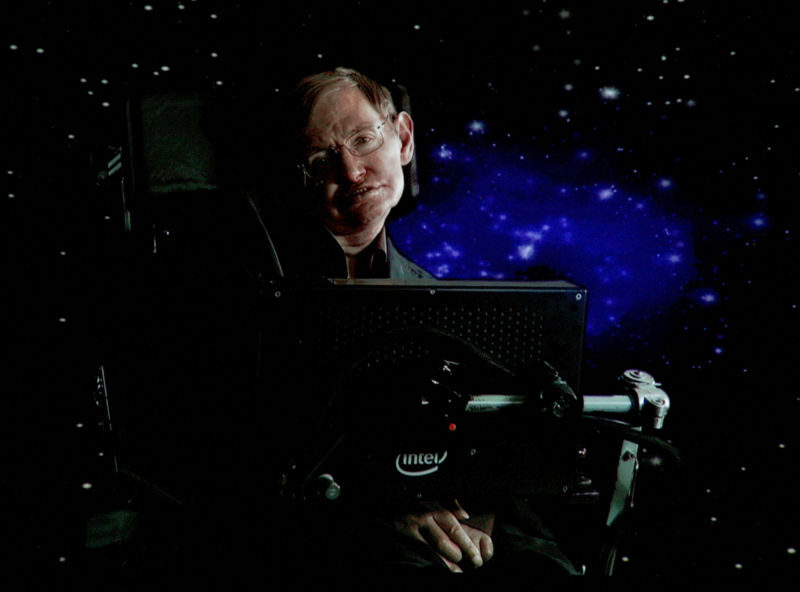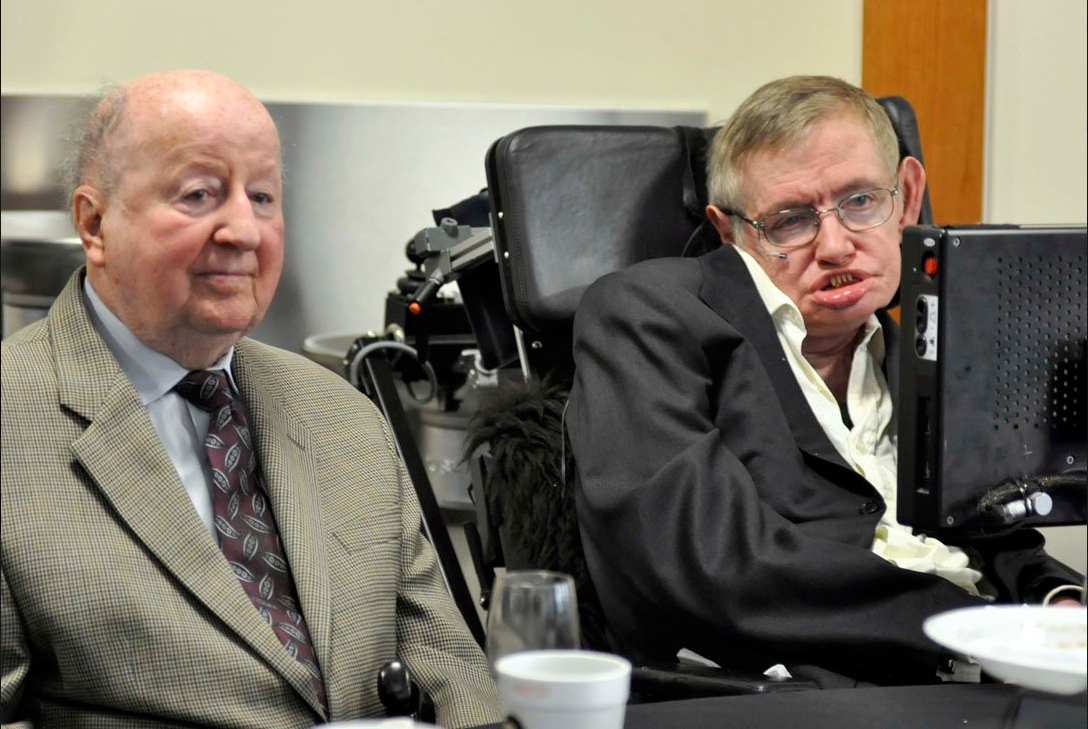
I first met Stephen Hawking in March 2003, when the most famous scientist in the world visited Texas. For a young science reporter at the Houston Chronicle, an invitation to interview Hawking during a stop in College Station rated as a real coup.
Reporters never like to submit their questions to a subject in advance; indeed it is something I often refuse to do. However, with Hawking and his limited ability to communicate, this was a prerequisite. As almost all of his motor skills had atrophied, Hawking used a custom-made computer to form words, which were then spoken through a voice synthesizer. Typically, he could form a short sentence in about five to 10 minutes.
Prior to meeting with him, I asked a number of scientific questions of Hawking. But, after all of these years, the one query, and answer, that sticks with me concerned the hottest issue of the day, the impending Iraq conflict. What did he think about the likelihood of the United States going to war against Iraq?
“It will be far more difficult to get out of Iraq than it will be to get in,” Hawking warned. He felt that America and its allies would get bogged down in a long-term, unwinnable conflict. As usual, Hawking proved prescient.
Theoretical physicists have the broadest of mandates—looking back to the very beginning of the Universe, when the cosmos underwent a rapid period of inflation, while also projecting forward hundreds of billions of years into the future when all will end in a slow, desperate heat death. With his positing about the nature of black holes, and theories of everything, Hawking lived in this world.
But he also lived very much in the real world, outside the academic tower, leaving Cambridge for places like Texas. Perhaps it was because of his staggering disability that people could relate so well to Hawking. Perhaps it was because of his gifted ability to relate the remote physics of cosmology to a cosmetologist.
Whatever it was, the world needs more of it. With Stephen Hawking’s passing, we have lost our most well-known scientist, someone who transcended the culture wars to foster a public appreciation of science—and for scientists.
Carriage rides
Hawking had come to Texas because of oil money, particularly that of a Houston wildcatter named George Mitchell, who launched the present-day fracking boom. Mitchell, a billionaire, retained his childhood fascination with the stars above late into life.
In 2002, Mitchel watched Hawking on a PBS show lamenting the failure of the US to complete construction of the Superconducting Super Collider. That episode had pained Mitchell, too. He had provided seed funding for the project as far back as the 1980s, and he rued the cancellation of the particle physics collider in 1993. Mitchell had contacts at the physics department at Texas A&M University, his alma mater, and through them arranged to meet with Hawking in 2002, when the great physicist was visiting at the California Institute of Technology.
Hawking was skeptical of Mitchell and his oil money. He had delighted in the downfall of the Houston-based energy trading company Enron, in 2001. But Mitchell’s enthusiasm (and money—about $20 million for various projects over 15 years) won over the physicist. After the 2002 meeting, Hawking visited Texas A&M or Mitchell's ranch half a dozen times, giving sold-out lectures on campus and bringing prestige to the physics department.

Over time, Hawking truly came to enjoy spending time at the 5,650-acre, forested ranch owned by Mitchell about an hour north of Houston, known as Cook's Branch Conservancy. There, he and other elite physicists from around the world, many of them students of Hawking, would gather for days in private, amid natural beauty, for conclaves to discuss the Universe.
On a couple of these occasions, I had the privilege of joining the physicists for dinner, drinks, and some of their discussions. The mathematics flew right over the top of my head, but the experience proved sublime all the same. Not every day does one sip expensive wine and watch Stephen Hawking hoisted into a carriage, alongside Mitchell, for a ride across an estate.
Communication matters
These meetings could also be somewhat awkward affairs. During dinner, for example, Mitchell and Hawking would sit at the head of the table. As an attendant fed Hawking, Mitchell might make a remark to the physicist, or ask a question, and then wait in silence for minutes for an answer. Meanwhile, chatter continued all around as Hawking worked away at his computer. Suddenly, and incongruously, the electronic voice would blurt out some reply.
In these moments, I wondered what it must be like for one of the most brilliant people in the world to have all of these thoughts bottled up in his mind but not be able to communicate them quickly or in totality.
I have been fortunate to spend time with some of the most brilliant people of our age, such as Elon Musk, Jeff Bezos, and Jane Goodall. All have sharp minds and limited tolerance for wasting time. How must it have felt to be perhaps the sharpest of all these minds but have no capability to interject, steer a conversation, or cut it off? I’m pretty sure this would drive someone with a ruthless intellect like Musk insane.
And yet Hawking devoted much of his life to public communication, giving long speeches where he just sat there and the computer read out a text he had labored so long upon. Hawking spent untold days writing books, preparing and delivering public lectures, and even passed time meeting reporters and answering their questions.
This is the lesson I take from Hawking’s passing—that important scientific endeavors and findings should be shared widely with the public in hopes of deepening appreciation for a rational worldview. If someone in a wheelchair, with a life-threatening disease, and the ability to share just a single word a minute can become a gifted science communicator, surely the rest of us can do better.
https://arstechnica.com/science/2018/03/stephen-hawking-taught-us-that-science-communication-really-matters/Bagikan Berita Ini














0 Response to "That one time Stephen Hawking went for a carriage ride in Texas"
Post a Comment